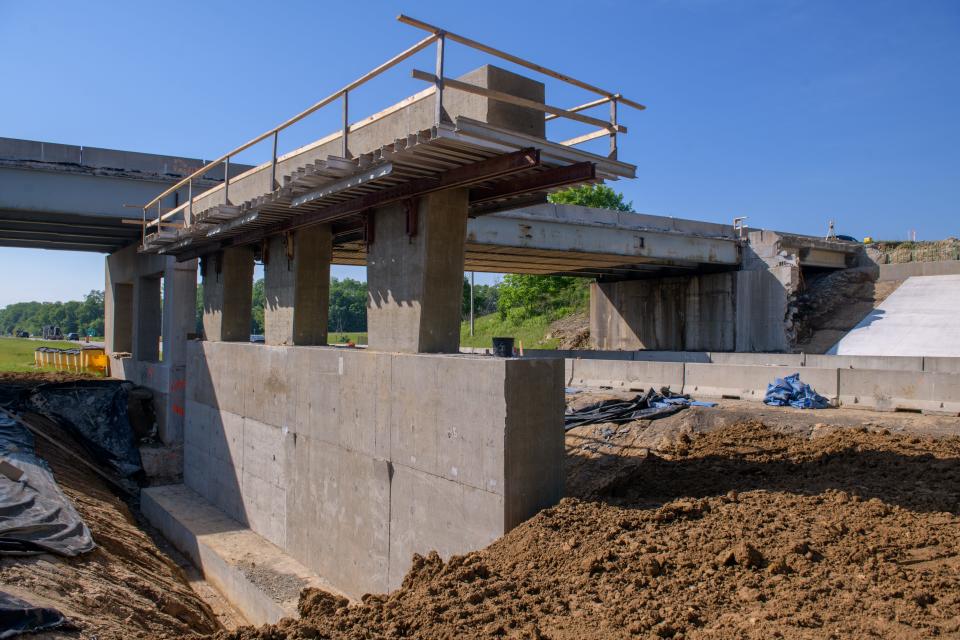BISMARCK, N.D. (AP) — Voters are settling a rambunctious Republican primary contest Tuesday for North Dakota’s only U.S. House seat and a competitive race for governor, with each winner putting themselves in a commanding position for the November general election.
Also on the ballot is a high-profile initiative that would bar people from running or serving in the U.S. House or Senate if they are to turn 81 years old during their term.
The GOP primaries are key to winning office in the conservative state, where Republicans dominate and Democrats have not won a statewide contest since 2012. Some legislative races have only Republican candidates this year, and two GOP state officeholders are running unopposed.
North Dakota has no voter registration — all that’s needed to vote is an accepted ID, such as a driver’s license. Any eligible voter can vote in the Republican races as long as they stick to that party on the ballot.
Republican Gov. Doug Burgum, who is among those being considered by former President Donald Trump as a vice presidential pick, is not seeking a third term, and U.S. Rep. Kelly Armstrong and Lt. Gov. Tammy Miller are facing off in the primary in hopes of succeeding him.
Armstrong, a three-term congressman, has endorsements from the state party and from Trump. Miller did not attend the GOP convention but has Burgum’s endorsement.
Democratic state Sen. Merrill Piepkorn is also running for the governorship, as is independent Michael Coachman, who once tried unsuccessfully to get a Burgum recall on the ballot. Coachman is not on the ballot on Tuesday, and has not yet submitted signatures to get onto the general election ballot.
The next governor will be tasked with balancing priorities, spending and tax cuts during a time when state finances are healthy, and also considering property tax reform, said Jim Poolman, a former Republican state insurance commissioner, lawmaker and party official.
In the race for the House seat being vacated by Armstrong, Republican contenders include military veteran and former U.S. State Department employee Alex Balazs; plastic surgeon and former state Rep. Rick Becker; longtime Public Service Commissioner Julie Fedorchak; Williston resident Sharlet Mohr; and Cara Mund, an attorney and former Miss America who ran unsuccessfully as an independent in 2022.
The relatively little-known Balazs has the endorsement of the state party, while Trump and Burgum have endorsed Fedorchak, who has won three previous statewide races. Becker, who founded an ultraconservative caucus in the Legislature, has endorsements from U.S. Sen. Rand Paul of Kentucky and other conservatives in Congress. Mund is running as a moderate. Mohr is also little-known.
The campaign has been marked by tough, negative ads in a contest of “who can be the Trumpiest,” said Earl Pomeroy, a Democrat who held the seat from 1993 to 2011.
“Have we really just gotten to the point where it’s all kind of a Fox News-driven contest about national, conservative talking points, or is there still an opportunity in a congressional race to talk about hard issues facing the state and who can best address them?” Pomeroy said.
Whoever wins for the GOP will face the winner of the Democratic primary, between military veteran Trygve Hammer and frequent candidate Roland Riemers.
The ballot measure that would set the congressional age cap is intended to avoid age-related and cognitive issues among officeholders, supporters say.
Some legal experts view it as a test case for revisiting a 1995 U.S. Supreme Court ruling against congressional term limits. A state legislative panel attached a $1 million cost estimate to the measure in anticipation of a lengthy legal challenge.
Republican U.S. Sen. Kevin Cramer, who is unopposed on the primary ballot Tuesday as he seeks reelection, is against the measure, saying voters should be able to choose whomever they want.
“To limit those decisions arbitrarily just doesn’t make sense to me,” Cramer said.
Despite the primaries’ decisive nature, they historically have seen low turnout, varying from 17% to 27% of eligible voters from 2014 to 2022.
Signup bonus from





